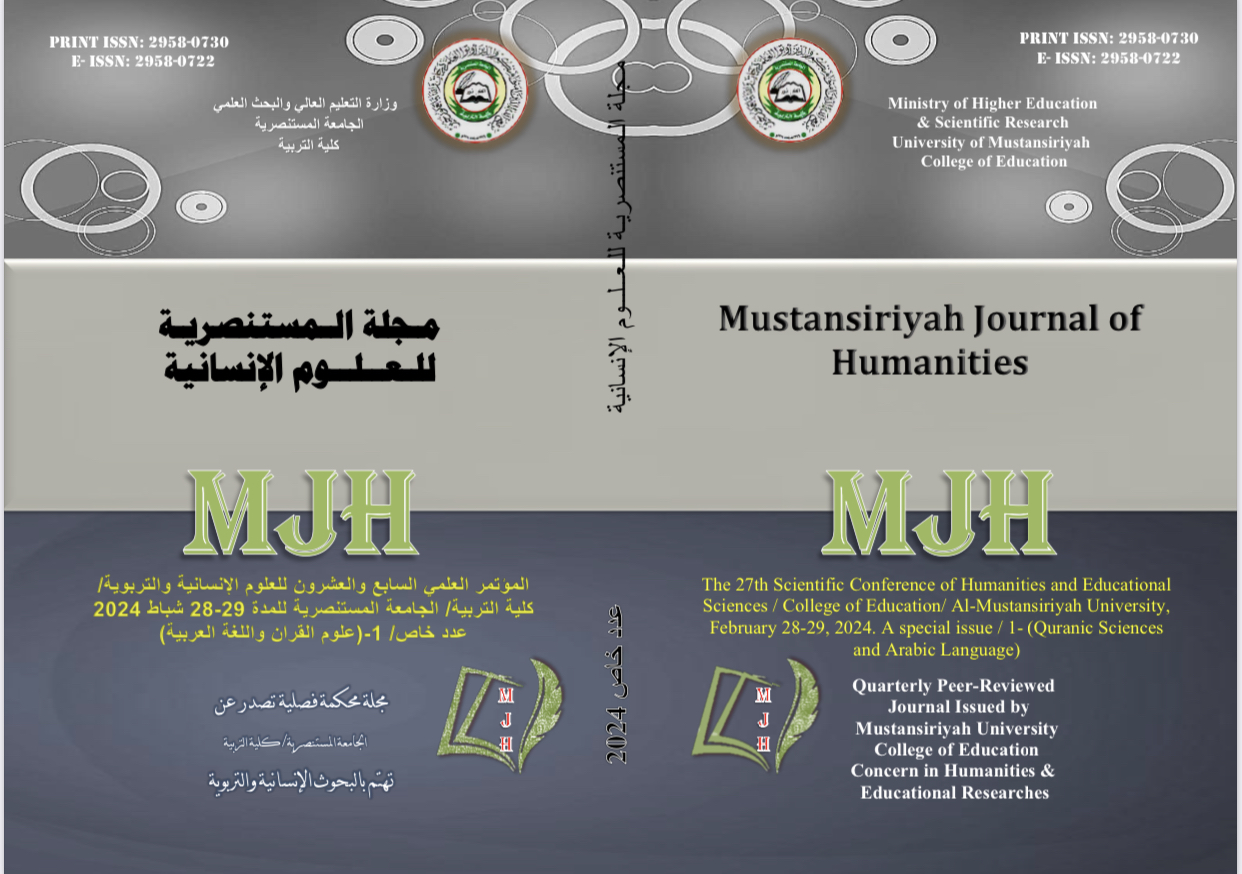The Effectiveness of Sad Words in Elegiac Love Poetry - A Case Study in Ancient Poetry
DOI:
https://doi.org/10.47831/mjh.v1iخاص.413Keywords:
Effectiveness of Sad Words, Words of Sorrow, Elegiac Love PoetryAbstract
In this research, we discuss the effectiveness of sad words in elegiac love poetry in ancient Arabic literature. The expressions of sorrow varied in these elegiac love poems, dominating the poetic mourning with varying degrees and employing them in harmony with the textual context in which they were placed. We concluded that there are four words that formed the dominance and predominant presence in these poems among other words. These words are tear, weeping, death, and sorrow. We focused on clarifying their linguistic meanings and their utilization by these poets in their different literary eras. Through the artistic analysis of these texts, we elucidated the difference in directing the expression among these poets, each according to their emotional and sentimental experience. We also highlighted the distinctions between these words in lexicographical significance. While tears indicate silent weeping, we find the harmony of expression and vocal meaning in the word weeping in the examined texts. Additionally, the word sorrow and its extensive connotations, referring to grief and indicating the barren land unsuitable for cultivation, contributed to a poetic structure in some of the examined texts.





